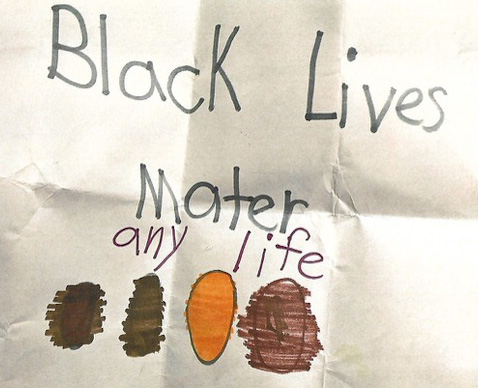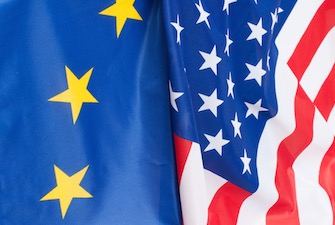David-Versus-Goliath Trademark Victory Isn’t “Exceptional” | McDermott Will & Emery
The US Court of Appeals for the Third Circuit vacated an award of attorneys’ fees for reanalysis, explaining that the district court’s finding that the case was “exceptional” under the Lanham Act was based on policy considerations rather than the totality of the circumstances. Lontex Corp. v. Nike, Inc., Case Nos. 22-1417; -1418 (3rd Cir. July 10, 2024) (Hardiman, Matey, Phipps, JJ.)
Lontex Corporation is a small Pennsylvania business that manufactures and sells compression apparel to professional athletes and the public. Since 2008 it has held a registered trademark for the mark COOL COMPRESSION, which it used in conjunction with its sale of apparel. In 2015, Nike rebranded an athletic clothing line that included a category of “Cool” products designed to reduce body temperature, as well as various fits, including “Compression.” It also began using the words “Cool” and “Compression” together in the names of Nike clothing products sold online and in Nike catalogues. Nike used “Cool Compression” as a product name on tech sheets, which are internal documents used to explain Nike products to employees and third-party retailers.
The following year, upon discovering Nike’s use of the phrase “Cool Compression,” Lontex sent Nike a cease-and-desist letter. Nike’s lawyers directed the company to stop using the phrase “as soon as possible.” Nike took steps to remove the phrase from its website and catalogs but not its tech sheets. Two years later, Nike reached out to its third-party retailers and asked them to stop using “Compression” in product names.
Lontex sued Nike for trademark infringement of its COOL COMPRESSION mark, for contributory infringement based on its supply of “Cool Compression” products to retailers, and for counterfeiting. The district court dismissed the counterfeiting claim, and a jury trial was held on the infringement actions. The jury returned a verdict for Lontex, finding Nike liable for willful and contributory infringement. The jury awarded Lontex $142,000 in compensatory damages and $365,000 in punitive damages but declined to award Lontex disgorgement of Nike’s profits.
Post-trial, Nike renewed motions for judgment as a matter of law on fair use, trademark infringement, contributory infringement, willfulness and punitive damages. Lontex moved for disgorgement of profits and trebling of the damages awarded by the jury. The district court granted Lontex’s request for treble damages, increased the compensatory award to $426,000, and separately awarded Lontex almost $5 million in attorneys’ fees after finding that the case was “exceptional” under the Lanham Act. Both parties appealed.
As to the willfulness finding, Nike argued that the jury should not have been permitted to infer willfulness solely from its continued use of the mark after it received its cease-and-desist letter. The Third Circuit disagreed, pointing out that not only did Nike adopt the “Cool Compression” phrase without doing a trademark search, it also continued to use the phrase after receiving Lontex’s cease-and-desist letter and being advised by its own legal team to stop using it as soon as possible. The Court concluded that a jury could reasonably infer willful infringement. For similar reasons, the Court found that a reasonable jury could reject Nike’s fair use defense, in which it claimed that it used the phrase “fairly and in good faith only to describe” its products.
Nike also argued that it was entitled to judgment as a matter of law on the likelihood of confusion. The Third Circuit used the 10-factor Lapp test to reassess the evidence in the most favorable light to verdict-winner Lontex. While the Court did not find that the factors strongly supported either party, it held that a reasonable jury could find that seven out of 10 factors favored a likelihood of confusion, which was sufficient to deny Nike’s motion for judgment as a matter of law.
As to the increased damages award, the Third Circuit found that the district court did not abuse its discretion in trebling damages, which is permissible under Pennsylvania law for “willful” or “reckless” conduct that qualifies as “outrageous.” Because Nike continued to use the “Cool Compression” phrase after being warned to stop, the district court correctly found that the evidence supported a jury finding of willfulness under the Lanham Act and reckless indifference under Pennsylvania law. While the district court declined to award Lontex profit disgorgement, it did not abuse its discretion in trebling damages to “provide adequate compensation” in light of Nike’s willfulness.
The Third Circuit rejected the district court’s finding that the case was “exceptional” under the Lanham Act, however, and explained that the district court focused solely on policy considerations rather than on the facts and totality of the circumstances. The district court considered the “David-and-Goliath” dynamic between Lontex and Nike, as well as the willfulness finding. However, as the Court pointed out, the facts matter when assessing exceptionality. For example, the record showed that Nike did not engage in any unfair litigation tactics, and privilege logs suggested that Lontex may have received outside litigation funding. The Court concluded that it was improper to assume, without further consideration of the facts, that Lontex was at an exceptional disadvantage. The Court remanded with instructions to the district court to conduct an exceptionality analysis under the totality of the circumstances following Fair Wind Sailing (3rd Cir. 2014) and Octane Fitness (Sup. Ct. 2014).
Practice Note: Even trademark infringement cases that are in some sense exceptional because of the parties’ stark differences in size, resources and fame might not satisfy the legal standard for “exceptionality” under the Lanham Act.
[View source.]





